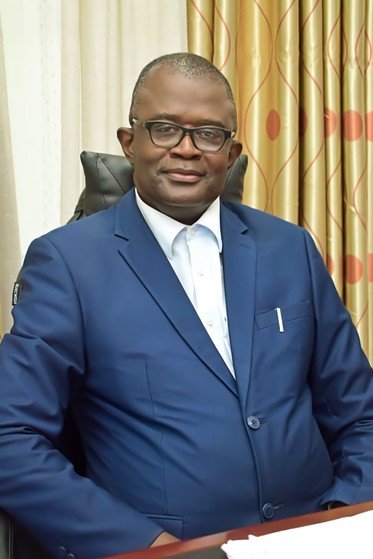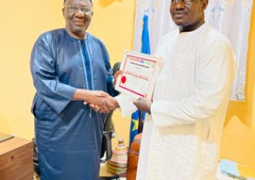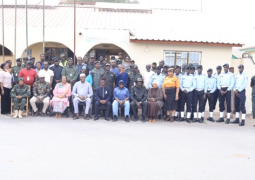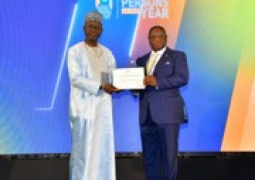
The support was part of Africmed’s Corporate Social Responsibility to the people of The Gambia, which has been ongoing for the past decade. This year’s breast cancer awareness campaign was mainly conducted across Africmed's health facilities or via support organisations to execute the exercise more efficiently, in observance of Breast Cancer Awareness Month, undertaken every October.
Considering the importance of Breast Cancer awareness, Africmed deemed it necessary to support the University of The Gambia Medical Students Association to carry out the exercise, said Africmed’s Chief Executive Officer Dr Omar Jagne.
“The initiative aims to promote early detection, educate the public on Breast Cancer prevention, and offer free clinical screening to enhance community health outcomes,” Dr Jagne says, adding that the event provided an important platform for knowledge sharing, public sensitisation, and medical support, while emphasising the critical message that “Early Detection Saves”.
According to the organisers, a total of 52 women participated in the screening exercise. The demographic and medical characteristics of participants include age distribution, parity, marital status, contraceptive use, symptoms, and clinical findings.
Addressing the gathering during the campaign, the president of UniGaMSA, Mamadou B. Jallow, said the main objectives of the event were to increase public awareness about breast cancer and its risk factors, educate women on the importance of regular self-breast examination and early screening, provide free clinical breast examinations and medical counselling to participants, and encourage youth involvement in health promotion and advocacy activities as well as foster collaboration among students, health professionals, and community stakeholders in the fight against breast cancer.
The event was also designed to draw public attention, mobilise participation, and symbolise unity in the fight against breast cancer, Mr Jallow added, saying: “The sensitization session was highly interactive, with participants given the opportunity to ask questions and clarify misconceptions about breast cancer.”
He also said the free screening exercise was conducted by a dedicated team of doctors and medical students’ volunteers from the Edward Francis Small Teaching Hospital (EFSTH) and the University of The Gambia.
Participants were first registered and provided with brief counselling on breast self-examination techniques before undergoing clinical breast examinations, he pointed out, saying: “Those with abnormal or suspicious findings will be seen at EFSTH for follow-up evaluation.”
Mr Jallow further stated that the screening served not only as an important diagnostic intervention but also as an opportunity for personalised health education and empowerment, encouraging women to take an active role in monitoring their breast health.
He added that findings from the exercise underscore the need for regular screening and community health education, particularly among young women who often underestimate their risk of developing breast conditions.
He acknowledged the critical role played by various individuals and institutions without which they would have found it very difficult to realise the success of the event.
He cited the office of the Health and Gender ministry - which “extends its deepest appreciation to the Edward Francis Small Teaching Hospital”, the Department of Surgery, and the National Cancer Control Program (NCCP) for their professional guidance, medical expertise and logistical assistance throughout the planning and execution phases.
He specially thanked their sponsors and partners, particularly Africmed and Carmou Global Properties, for their generous contributions and unwavering commitment to advancing community health.





